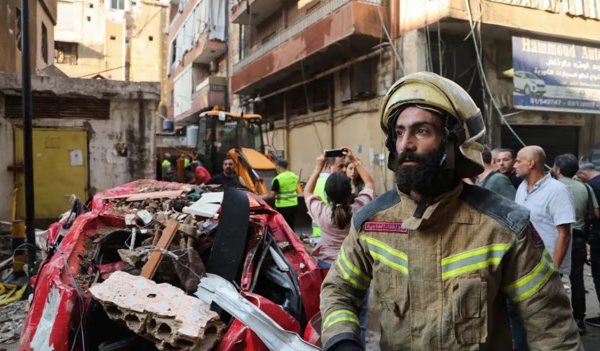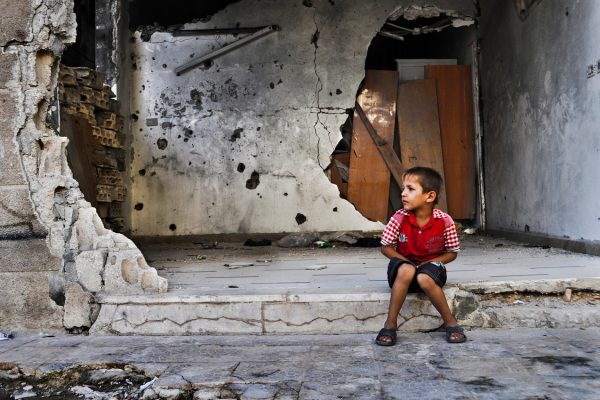“Those who in charity spend of their goods by night and by day, in secret and in public, have their reward with their Lord: on them shall be no fear, nor shall they grieve” (Quran 2:274).
“Those who in charity spend of their goods by night and by day, in secret and in public, have their reward with their Lord: on them shall be no fear, nor shall they grieve” (Quran 2:274).
Charity is one of the most important practices in the Islamic faith.
Through giving charity, Muslims bear witness to their belief in doing good for all of humanity and with their good deeds, they provide the means to address issues like food insecurity, refugee crises, clean water access, and more.
Within Islam, one form of charity, sadaqah jariyah, is highly recommended as a means of sustainable charity that can have a significant, lasting impact on those it benefits.
What is Sadaqah Jariyah?
“Those who in charity spend of their goods by night and by day, in secret and in public, have their reward with their Lord: on them shall be no fear, nor shall they grieve” (Quran 2:274).
The definition of sadaqah
The word sadaqah has its origin in the Arabic root sidq, which means “truthfulness.”
Sadaqah, the voluntary charity given in any amount and in any duration throughout a Muslim’s life, is thus a kind of physical “proof” of one’s faith — a means by which one’s belief becomes manifest in the world. At its simplest, sadaqah is any action a Muslim performs that gives benefit to any entity in this world, whether that be humans, plants, animals, and more.
Examples of sadaqah that can be given include: giving charitable donations to meaningful causes, volunteering one’s time in community efforts, and planting trees that will bolster the local environment. It’s up to each individual Muslim to decide for themselves which forms of sadaqah are best suited for them to give and through this, the Muslim community’s practice of sadaqah brings both broad and deep solutions to the world’s problems.
Among the different types of sadaqah that can be given, one, in particular, is emphasized in the Islamic tradition — giving sadaqah jariyah.
The definition of sadaqah jariyah
“When a human being dies, all one’s deeds cease, save three: a sadaqah jariyah, [religious] knowledge [one leaves behind] from which others benefit, and a righteous child who prays for one” (Muslim).
Sadaqah jariyah, or “charity ever-flowing,” is a special form of sadaqah the Prophet Muhammad recommended, on him be peace, in which the benefits of one’s sadaqah continue on even after one’s passing.
Examples of sadaqah jariyah include providing education and shelter for orphans, contributing to the construction of schools or hospitals which will continue to operate for decades, and raising righteous children who will continue performing good deeds as they get older.
Sadaqah jariyah is an important component of Islamic giving because it ensures that charity remains for generations and continues to provide sustainable benefits for humanity alongside more time-restricted forms of Islamic charity, like zakat.
Additionally, within the acts of sadaqah jariyah recommended in Islam, one in particular is encouraged above all else — giving clean water.
What is the Best Kind of Sadaqah Jariyah?
Sa’d ibn ‘Ubadah asked, “O Messenger of Allah, my mother has died. Shall I give charity on her behalf?” The Prophet, on him be peace, said, “Yes.” I said, “Which charity is best?” The Prophet said, “A drink of water” (Al-Nasai).
Water is one of the most essential elements for life on this planet, with humans, animals, plants and more depending on its availability daily for survival. Because of this, it is easy to understand why the Prophet (on him be peace) emphatically recommended providing consistent water sources as the best form of sadaqah jariyah.
Without stable access to clean water, humans aren’t able to stay hydrated, wash their food, clean their bodies and homes, and so much more.
For people in remote parts of the world in countries like Mali, Ghana, and India, access to clean water could involve walking miles to a well and sacrificing valuable time that could be spent on work or education in the process. In fact, it’s estimated that those without access to safe, clean water at home spend nearly 200 million hours collecting clean water each year.
Our clean water program is dedicated to help our fellow brothers and sisters easily access safe water in 12 countries through constructing water wells and providing education on water and sanitation awareness.
Give the gift of clean water as your sadaqah jariyah.





